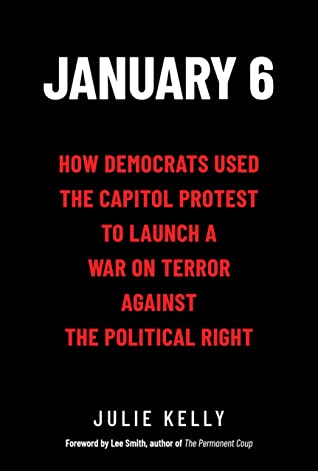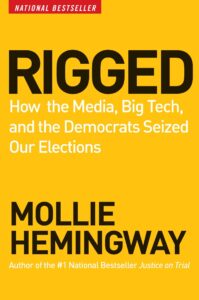As I promised the other night, this is the second part of my impromptu series that began when I quoted the Delaware state Libertarian Party chair at length. I want to go back and remind you of the portion that was the springboard for this part of my thinking:
The “Patriots of (sic) Delaware” and before them the 9-12 groups and Tea Party groups also showed up and volunteered and did all the things. The result has been an absolute tanking of DEGOP vote totals since Christine O’Donnell knocked out Mike Castle in a primary and now the Republicans do not hold a single statewide office and can’t even block bills requiring a 2/3rds vote in the Delaware Senate. They have been catering to the people who show up instead of the people who don’t and it’s destroying them.
Will McVay, Delaware Libertarian Party Chair, December 5, 2021.
Part of the problem I have with that assertion is finding out that the trend away from Republicans began long before Christine O’Donnell ever ran for anything.
If you look at Delaware now, you would see a state that is solidly blue politically. What Will McVay said made me go back and do some research, using voter registration and election data from the Delaware Department of Elections. With some exceptions, their online database goes back to 1972, so let’s begin there.
This, then, is a short and abridged history of the downfall of Delaware’s two-party system.
1972: At that point fifty years ago, Democrats only outregistered Republicans by just over six points (41.2% to 34.9%.) That was as close as the GOP has come to the Democrats over the period I’m covering, and in that year’s election the results were bipartisan: Richard Nixon carried Delaware in his re-election bid, bringing along House member Pierre duPont. Sherman Tribbitt was elected governor as a Democrat, and he had a mate in some young unknown to the U.S. Senate seat named Joe Biden.
1976: Perhaps the shift toward Democrats began with Watergate, as the Democrats picked up four points among the electorate in four years, expanding to a 43.3% to 32.9% registration lead. Jimmy Carter won Delaware as he did nationally, but the Delaware Republicans bucked an otherwise dismal trend by keeping GOP Senator William Roth in office and buttressing him with newly-elected House member Thomas Evans, Jr. The House seat opened up because fellow Republican Pierre duPont won the governorship, defeating incumbent Sherman Tribbett.
1982: While Republicans held at 32.9%, Democrats continued to increase by rising to a new high of 44.6%. (I’m using 1982 registration data because the 1980 set is missing.) In that 1980 election, Ronald Reagan carried Delaware for the GOP, bringing with him Thomas Evans Jr. and Pierre duPont for another term apiece. Two years later, Evans would be replaced by Democrat Tom Carper, which brings us to…
1984: As part of his 49-state stomping of Walter Mondale, Ronaldus Maximus carried Delaware. He also began a restoration of Republican fortunes in Delaware as their registration total rebounded to 33.6% while the Democrats held practically steady at 44.7%. The Reagan revolution also kept the governorship in GOP hands as Mike Castle won the job. Delaware, though, retained Democrat Joe Biden in office and kept his party-mate Tom Carper in the House. (You’ll notice a lot of these names begin to sound familiar.)
1989: Don’t ask me why, but the state has 1989 registration totals under their 1988 file. Regardless, the GOP continued to eat into the Democrats’ lead, trailing just 43.6% to 36.1%. The 1988 election, though, would be the last time the GOP won Delaware’s electoral votes as George H.W. Bush carried the state, along with William Roth maintaining his Senate seat for the GOP and Castle winning a second term as governor – the last GOP governor to be elected. Tom Carper was the one successful Democrat, keeping his House seat.
1992: This was the year of the big switch in more ways than one. The Republicans were at their peak, garnering 36.8% of registered voters compared to 43.4% for the Democrats. Bill Clinton won the Presidential election, but the controversy was in Mike Castle and Tom Carper trading jobs, with Castle relocating from Dover to Washington as Delaware’s newest member of Congress while Carper came home to become Governor. Neither Senator was on the ballot.
So in the first twenty years of this study, the Republicans lost ground for awhile in the post-Nixon Watergate era but steadily gained it back under Reagan/Bush to return pretty much to where they were when this began.
1996: Whether it was the Perot factor, or reaction to the Gingrich-era Contract with America, both parties lost ground in the mid-90s. Democrats fell to 42.4% – a low they have since continued to recover from – while the GOP slipped to 35.5%. And aside from Castle keeping his House seat for the Republicans, it was a disaster for them as Bill Clinton still won the state and Joe Biden and Tom Carper retained office.
2000: Republicans fell to just 34% of the voters in Delaware, while Democrats moved up to 42.6%. Al Gore carried the state, while Tom Carper returned to Washington to become Senator and his former LG, Ruth Ann Minner, advanced to become Governor. Mike Castle continued in the House for the GOP.
2004: Still slipping, the GOP fell to 32.9% of the voter share, while Democrats continued to increase as they recovered to 43.7%. John Kerry carried the state, while Castle and Minner stayed in their positions. (No Senate race.)
2008: The GOP registration decline accelerated in the mid-aughts, as they slipped close to the 30% mark for the first time (30.2%) while the Democrats established a modern high of 46.4%. Needless to say, they carried the state with Barack Obama as president, Joe Biden (winning a Senate seat he would have to resign weeks later to become vice-president), and Jack Markell as Governor. Mike Castle remained in the House for what would become his last term.
2010: The O’Donnell-Castle election. This was the first election for the TEA Party, and when they came on board the GOP was in its most dire straits yet. The GOP was now down to 29.3% of registered voters, while the Democrats finished a decade of domination by reaching another new high of 47.1%. In a decade, the margin between the parties had grown by nearly 10 points. Democrat Chris Coons won the special Senate election to finish the term Joe Biden began, while John Carney took the House seat Mike Castle abandoned in his unsuccessful Senate bid. The Republicans held on to just one statewide seat, losing in the AG and Treasurer race but retaining the Auditor’s seat.
In the decade since, the GOP has only one statewide election win (Ken Simpler for Treasurer in 2014) and has seen further erosion of their statewide share of voters from 29.3% to its current low of 27.5%; meanwhile, the Democrats have gone up from 47.1% to a new high of 47.7%. Compared to the 2000s blowout, the 2010s were a slow leak, even with the whole controversial Trump term.
So now that I’ve taken 1100 words to set this up, the question is what has caused this long decline? What was different about the two parties in 1972 (or even 1992) that voters were relatively evenly distributed and both parties could win a statewide election?
I think what McVay would argue that the Republican Party has become too conservative, catering to the populist bent of Donald Trump’s supporters and losing its tolerance of what used to make it a “big tent.” At the same time, Delaware Democrats have been more reserved in their march leftward, rebuffing challengers from the left of the incumbents in their two most recent primary elections for Governor and U.S. Senate. (Much of that, though, is probably name recognition or lack thereof for the upstarts.)
Yet the popularity of the party in the Reagan-Bush years belies that assertion. There’s no question Ronald Reagan was a conservative Republican, but he also had a certain amount of appeal to the working class and built a wildly successful coalition of Republicans, independents, and so-called “Reagan Democrats,” bridging the gap between white- and blue-collar workers to dominate electoral politics for a decade. (If he weren’t Reagan’s VP, do you really think George H.W. Bush would have won in 1988?)
In my estimation Donald Trump tried to rebuild the Reagan coalition, but despite his television experience Trump wasn’t really the “Great Communicator” Reagan was. But he also faced a Democrat Party establishment that was radically different than the one in Reagan’s day – while it happened a couple times under Reagan, the George H.W. Bush term was when we really saw that, when Republicans reached across the aisle, the Democrats would rip off their arm and beat them with it. Remember, “read my lips” was supposed to come with spending cuts, too. Guess which part of the bargain wasn’t held up?
So we have had a hardening of the sides and a coarsening of political discourse. More importantly, though, we have to ask the question: when was the last time you heard anything good about the Republican Party?
People tend to operate in an information silo, so when most of these outlets say nothing good about the GOP people tend to shy away from their party and, by extension, their ideas. To a small extent, Donald Trump had pulled back that curtain but he still lost the House at his midterm election, ruining the trifecta built up with takeovers of the House in 2010, Senate in 2014, and Trump himself in 2016. (Delaware had nothing to do with any of that, though. Those red waves bypassed the state.)
The message the Democrats have managed to sell to the state of Delaware is that they are business-friendly moderates – but they’re generally only a step or two behind California, Massachusetts, and Maryland in enacting liberal policies. We have to get enough people fed up with the way things are going to enact change, but you can bet your bottom dollar the Democrats and the press (but I repeat myself) will do their best to maintain the status quo by deriding Republicans as racist, radical, and uncaring – never mind they are none of the three.
Now you would think that the thousands who have arrived in Sussex County over the last decades would help turn the state toward the Republicans but it’s obvious enough of them have maintained the voting habits that made their former states uninhabitable to them that they’re fouling this nest.
Maybe what’s needed is a Contract with Delaware. Something is needed to shake up the lethargy in the Delaware Republican Party before it falls further into irrelevancy. There are good, conservative candidates out there who need to tell us what they are for, not what they’re against.
But to answer the contention: how can you cater to the people who show up when no one shows up? As I said in part one, at least having the 9/12 Delaware Patriots and Patriots for Delaware means we have a bit of a force to counter the waves the other side can bring from the union ranks. It’s a start, so once our side learns which hills are best to attack and which ones aren’t worth dying on, we can begin to make real progress in this state.



